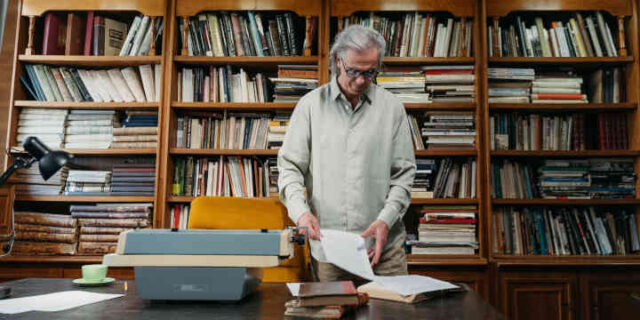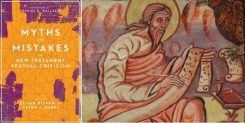Is science the best way to know things? Is it even, as some people claim, the only way to reliably know things?
Are there things that the scientific method can’t help us with? Are there important matters that we know in other ways? How can we work this out?
Can we really know anything for sure?
Knowledge is a tricky thing. Even the cleverest of us can be quite sure about something, and yet be wrong. And we can be uncertain about something and still actually have it right.
So what does it mean to know something?
Very few things can be absolutely proven to be true, we can always be mistaken, and be corrected by some new information. So perhaps we should define “know” as to be confident of. (Philosophers say three things are necessary for “knowing” – see note 1.)
So how can we come to a view that we can be confident of?
Different ways of knowing
There are many different ways we can know things. (Again, philosophers have a more theoretical way to describe how we know things – see note 2.)
- Authority – we trust someone who knows more than we do (e.g. a specialist doctor or the testimony of an eye witness in court).
- Evidence – something conforms to what we know about the world via science or history or observation (e.g. the extreme weather we have experienced lately is predicted by climate science and so is evidence for climate change).
- Experience – our personal experience is a very direct way of knowing (e.g. our knowledge of what we did yesterday or an eye witness in a court case).
- Track record – if something leads to a better world or a better life, we are justified in thinking it may be true (e.g. Nazism often leads to ugly behaviour, so we may reasonably conclude it is likely untrue).
- Intuition – sometimes we feel strongly that something is right or wrong (e.g. a relationship that needs to end).
- Revelation – God may reveal truth to us, through scripture or through experience – perhaps a vision or a dream, but more likely via a thought or a new understanding.
Appropriate ways of knowing
Different types of information are known in different ways. Let’s consider three different types of information:
Personal views
All of us have personal views and tastes – e.g. the food we prefer, whether we are adventurous or risk-averse, and our ethics. Sometimes our views are revealed by our behaviour, but mostly I cannot know your personal views unless you tell me and I believe you.
So each of us is an “authority” on our own views and opinions, and we rely on each person’s testimony or self-revelation to know these things about others.
Repeatable external events
Where an event is repeatable, we can in principle verify what another person has observed. This is the basis of the scientific method – experiments or observations can be repeated until we can be confident our observations give us a true insight into reality.
Even here, however, we mostly rely on testimony (others telling us of their observations) and authority (trusting those best qualified to interpret observations) because it is impossible for anyone to reproduce all science experiments and observations.
Non-repeatable external events
Most of what happens in the world isn’t repeatable and so cannot be known by the scientific method. This isn’t of great consequence because we don’t really need to know most of what happens. For example, what you ate for breakfast yesterday isn’t repeatable or observable by me, but since I don’t need to know, who cares?
But there are cases where knowing the truth about non-repeatable events is very important. For example, in an important court case, knowing whether a criminal fired at police before they shot him is important for the court apportioning blame. In most court cases, science is of some value (e.g. in DNA or ballistic evidence) but the essential facts of the case have to be established by corroborating testimony. If several reliable witnesses agree on a matter, the court is likely to accept their evidence.
A court case may therefore revolve around whether witnesses are reliable and how to interpret their evidence.
Appropriate ways to know about Jesus
The life of Jesus is an unrepeatable event. So while science may have a role in deciding whether we can believe in Jesus or not (e.g. via archaeology), that role will be limited.
Historical study needs, and uses, other methods; it is not unlike a court case in depending on corroborating evidence.
To be good evidence, historical records, like court testimony, must be tested. Criteria will include:
- Was the writer was in a good position to know what he writes about? Were they eyewitnesses or repeating eye witness accounts? Did they live close in space and time to the events?
- Were they reporting in good faith or are they biased? Did they have something to gain by misreporting?
- Are the reports consistent with other reports? This will include other reports about the specific events (in this case, the life of Jesus) and other reliable historical inmformation.
Doubtless information gained in this way isn’t as certain as information from repeated scientific tests. But it is similar in principle to other information we use to make important decisions:
- Life and death court cases are decided on the corroborating testimony of witnesses.
- We make critical life decisions like marriage, relationships, career and ethics on the basis of non-repeatable and non-scientific assessments.
Assessing the historical testimony about Jesus
The testimony about Jesus’ life is good by historical standards.
- There are many independent witnesses living close to the events.
- These witnesses agree about the main facts of the life of Jesus, though they differ on some details.
- There is no reason to suppose they had reason to deceive.
- The information in the reports of Jesus’ life is generally consistent with what we know of that period and the small amount of independent references to Jesus.
In these respects the historical evidence about Jesus’ life is broadly superior to the evidence for many famous figures of the time (e.g. Alexander the Great, Hannibal) in the number of independent reports and the closeness of the available testimony to the events. This doesn’t prove that the stories about Jesus are true, but illustrates that rejecting them on historical grounds may be overly scepticial.
We may not know but we can be confident
All this indicates that an honest historical assessment should conclude that we can be confident of the broad details of Jesus’ life. He wasn’t a legend or an invention. He really did exist as a first century Jewish teacher, prophet and apparent miracle worker who apparently made some grand claims about his role and mission.
Whether he was nothing more than a wise teacher but failed prophet, or he was the Messiah and son of God, is a matter for personal assessment. But we do have sufficient information to make a reasonable assessment of those possibilities.
Note 1: Philosophers say we can know something if:
- we believe something, that is, we think it is true,
- it is in fact true, and
- we have justifiable reasons to think it is true.
But this definition is a little circular. Since it is rare that we can know if something is true (#2), then we may know something, but we cannot know that we know.
Note 2: Philosophers say there are 5 ways we can know something:
- Perception: what we know via our 5 senses.
- Introspection: knowledge from the inside – what we know about ourselves.
- Memory: retaining knowledge from the past.
- Reason: knowledge that doesn’t come from experience but from logic.
- Testimony: information that comes from someone else.
Each of the six ways of knowing I have used here is based on one or more of these. Most or all require memory and perception; several require other means as well. I’ll leave you to work out which.
Photo by Tima Miroshnichenko






Hi Eric! Hope you’re summer……or is it winter on your end of the globe?…is going well.
When it comes to what science can tell us, my view is that it can only deal with “how” (or at least in theory), but cannot deal in “why”. For example, science can fully explain “how” I exist (the atoms that constitute my physical being, the reproductive biology of my mother, evolution of my species etc), but I can’t think of a single answer to “why” of my existence that is purely scientific. My philosophy of science is influenced by my forensic training, where it has been impressed upon me never to deal with “why’s”. That’s not within a lab’s realm of testing.
I find, at least in principle, being confident of something is better than claiming to know.
Of course if we’re being honest, de facto I feel I “know” I’m using my phone to type this…..but in theory who’s to say I’m not suffering from a brain hemorrhage and only believe I am when in reality I’m Laying motionless somewhere on the street? So I strongly prefer “confidence” to “knowing” at least in principle.
As to God, I feel that there is God, but can’t get over a deep feeling of uncertainty and fear of being wrong. Also, of all the things I see as being something that can’t be definitely proven or disproven, God is probably at the top of the list. So for now at least I simplify things and label myself a “hopeful agnostic”.
Wishing you well Eric!
Aaron
Hi Aaron,
Well, spring at present, but heading towards summer. It’s been a cold wet winter for us, so nice to be getting warmer.
I’d be interested to hear more about your forensic training, by email if you’d prefer not to be so public.
It is an interesting dilemma you are in, but of course, more than interesting. I often go over the same sort of dilemma in my head. What if I’m mistaken about God and about Jesus? What if I should change my view and be uncommitted and an agnostic or non-believer?
But when I get to that point, I think about how I’d then be denying what I regard as strong reasons to believe in God – how else could such a fine-tuned universe exist, how else can I explain the life of Jesus, etc. I keep on concluding that I still have greater confidence in believing than I could in not believing.
I think we each (not just you and I, but many others) have personal reasons that make us more or less willing to make the jump. For me, I think the probabilities definitely favour belief, and I think it is a better life. But everyone has to make their own assessment.
Best wishes to you too, and thanks for reading and commenting!
Hi Eric!
Your of course free to ask any question you like about my forensic training. If you ask anything I’m not sure about I’ll just tell you I don’t know. You have my consent to email me privately if you wish.
Wishing you and your loved ones well
Aaron